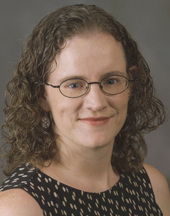2013 was a great year of growth for Mach 30. We launched a new open source spaceflight hardware project, added great new volunteers to make even more projects possible, and fostered new partnerships in the fields of spaceflight and education. We’re looking forward to the opportunities 2014 is already promising, but before doing that we want to look back at where we’ve been.
Volunteers
Maureen Carruthers, who has been with Mach 30 since the beginning, retired from the board of directors this year. Maureen was instrumental in defining the organizational ethos that has helped bring Mach 30 to where it is today. Founding member, social media guru, organizational pioneer, these were a few of her day-to-day functions. Among the many projects she was involved in during her time as a board member were the organization our Open Design Engine Kickstarter, and many online events such as the Mach 30 Yuri’s Night party. We will miss Maureen’s contributions, but are very excited to see what she’s been doing in her new role with the National Robotics League.
Mach 30 runs on volunteers, starting at our board level. Several very active volunteers have come aboard this year, and have greatly increased the amount we can accomplish. Thanks to them, and the existing Mach 30 volunteers, for contributing your time, talent, and enthusiasm. Mach 30’s mission can not be accomplished without you. If you’re interested in volunteering with Mach 30, we’d love to hear from you. You can use the contact form to let us know a little about where you’d like to contribute. Not interested in hardware or engineering? No problem, Mach 30’s mission spans many disciplines, and we need people with diverse interests and backgrounds to get involved.
Export Control Task Force
During 2013, the Mach 30 community came to understand more fully just how challenging export control regulations are. For those unfamiliar with export controls, they are laws and regulations that prohibit the unauthorized exchange of information and technology that the U.S. government deems a threat to national security. Unfortunately, most things related to spaceflight fall into this category. What this means is that Mach 30 has some extra work to do on bridging the worlds of open source hardware and export controls. This is the reason for the Export Control Task Force. There are several dedicated volunteers who have elected to take on this not-so-glamorous work for the good of us all. Their research and the documents they create are published under a Creative Commons license, so you don’t have to start from scratch when working with export controls. You can find a more in-depth explanation of the task force here, and you can follow the oss-export-control Google group to keep up on the latest happenings.
Shepard Test Stand
Shepard is our model rocket motor test stand. It is designed to provide a safe first step into the world of rocket motor testing and analysis, with the goal of allowing students and makers to replicate the manufacturer thrust data for Estes motors. While Shepard was an active project before 2013, it saw tremendous progress in 2013. We are currently working on version 2.0, leading to a kit version that will hopefully be available sometime in the last half of 2014. Shepard has already been used for some educational and public outreach, with much more planned in 2014 as the kits become available.
Partnership with the Coca-Cola Space Science Center (CCSSC)
We were very fortunate to connect with the team at the Coca-Cola Space Science Center in Columbus, Georgia. Our Shepard test stand project fits in very well with an educational rocket propulsion unit they are developing. The idea is Mach 30 will provide test stand hardware while CCSSC provides educational curriculum for the test stand. This will allow educators and students to get hands-on experience with real rocket motor testing in a low risk environment. We have a blog post that talks about CCSSC’s success in building their own copy of Shepard from the documentation on Open Design Engine. They will use this copy when developing the curriculum.
Ground Station
Ground stations that can communicate with satellites and spacecraft in orbit are a critical piece of the human spaceflight technology puzzle. With the ever increasing interest in CubeSats, low cost ground stations that makers can build are becoming even more sought after. Community member Aaron Harper has been working on a series of omni-directional ground stations that makers can build in their garage and operate with just a single laptop computer. The most recent one of these designs is Ground Sphere, which is designed to work with 915 MHz CubeSats.
Partnership with Southern Stars (SkyCube)
It’s certainly no accident that our Ground Sphere ground station design is compatible with 915 MHz CubeSats. Through a serendipitous meeting and impromptu demo at the New Space conference, Southern Stars became a more recent partner of Mach 30’s and has a very interesting use for Ground Sphere. They Kickstarted a CubeSat named SkyCube that is scheduled to launch in January. SkyCube has a very interesting feature that will transmit the tweets from orbit that SkyCube backers have written. Ground Sphere is designed to give backers the opportunity to receive those tweets directly in their homes, schools, or makerspaces.
Conference Attendance
As always, there were many great conferences to attend in 2013. The Open Hardware Summit, NewSpace, and the Open Source Hardware Documentation Jam, just to name a few. We have write-ups for a couple of these events on our blog.
We find that nothing quite replaces face-to-face meetings with other space and open hardware enthusiasts. Conferences never fail to be worth the effort. Attending a space or open hardware related conference in 2014? Keep an eye on our social media channels to see if we’ll be there. We’d love to meet you!
Moving Forward
While we’re excited about what we were able to accomplish in 2013, there is so much more that can be done in 2014 with your involvement. If you have a passion for space, and want to see it become a deeper part of your everyday life, please consider becoming a member of the Mach 30 Catalyst Club. The Catalyst Club is our yearly membership program that allows you to contribute directly to Mach 30’s mission. There are multiple levels of donation, from $20 to $1000. Please consider giving at whatever level fits you the best, and partner with us in hastening the advancement of humanity into a spacefaring civilization.
Ad astra per civitatem – to the stars through community.













